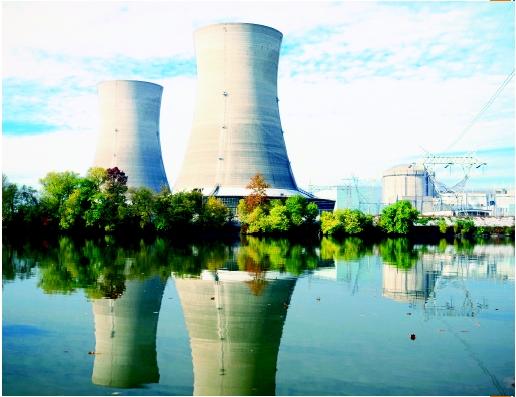
Nuclear power is the most reliable and sustainable source of electricity to power economic development into the future, Stratek Business Strategy Consultants CEO, nuclear physicist Dr Kelvin Kemm said on Thursday at a presentation hosted by combustion and energy systems firm Saacke.
Increasing electricity provision in developing nations results in almost instantaneous social upliftment of developing populations, as a direct result of increased economic growth.
However, electricity provision across the vast expanses of the African continent requires unique ‘African’ solutions, which original-equipment providers in places such as Europe seldom can provide, he said.
Kemm believes the answer lies in radial power supplies, using smaller electricity grids. This would entail the construction of smaller-scale power plants such as what would possibly have been achieved with the shelved Pebble Bed Modular Reactor project.
“Transporting electricity over long distances is wasteful, owing to energy losses and the maintenance of the associated infrastructure. Placing smaller power plants closer to the point of consumption is the ideal scenario for optimal energy efficiency,” he pointed out.
Further, the power source should be as reliable as possible, something Kemm said alternative power sources could not always guarantee.
He explained that wind power, for example, was not a reliable source of energy, owing to high capital costs and that the average output fluctuated severely with the seasons. Wind turbines were said to be less efficient at reduced wind speeds and could not take advantage of higher-than-optimal wind speeds, owing to maintenance concerns.
“France achieves the cheapest cost for electricity, owing to its significant reliance on nuclear power, whereas Belgium, one of the countries with the most installed wind turbines, has some of the most expensive electricity in the world.”
Meanwhile, Kemm believes that Africa needs African solutions for African needs. He pointed out that a small country such as Rwanda’s electricity consumption peaks at about 87 MW, whereas a medium-sized city such as East London consumes about 100 MW at peak levels.
The country does not have sufficient natural fossil fuel resources to feed, for example, a coal-fired power station, and cannot rely on such fuel to be reliably transported across numerous borders.
“A small-scale nuclear power plant would, in such a scenario, provide the ideal solution to long-term sustainable electricity supply to catapult the country’s growing economy into high-gear,” he explained.
Kemm argued that the key to unlocking economic development lies in providing a country with the cheapest possible electricity. It does not matter what the source is, whether it be from fossil fuels, locally available recyclable materials that could be used to generate small amounts of electricity, or alternative energy sources.
GLOBAL WARNING
Kemm stated that human-induced global warming was a “farce” that was being exploited by power-mongering politicians. He claimed that no single piece of scientific evidence linked human activities to global warming, and warned against being taken in by so-called ‘extreme green’ advocates.
In fact, he said that the scientific, historic, geologic and other records show that earth experienced a warmer climate up to as recently as the 1400s – providing the Vikings with iceless seas to access Greenland and the North Americas. This was followed by a cooler climate, to such an extent that Londoners held fetes on the iced-over Thames river.
“Nobody thinks this was out of the ordinary. To date, 1998 stands out as the hottest year on record, and since then, temperatures have been flat, and even cooler. So what is the whole fuss about global warming, owing to carbon dioxide emissions?” he asked.
The first commitment period of the Kyoto protocol, aimed at binding signatory nations to reduce carbon emissions, is due to expire in two months time and Kemm believes that chances of securing a new deal for the following period are exceedingly slim. This is also largely due to the highly politicised nature global warming negotiations have assumed.
Because of the hype surrounding global warming, many developing countries were finding it increasingly difficult to secure reliable and cost-effective electricity supplies, Kemm said. He added that nuclear modular reactors would provide smaller countries and even large private companies with sufficient, and cheap electricity.
“It does not matter if one burns coal, gas or municipal waste to generate electricity, as long as it is done on the most efficient manner available at the time. Using local energy sources makes much more sense than to transport electricity long distances, at greater cost,” he said.
When asked about the effect nuclear waste has on the environment, he replied that South Africa had a perfect example at hand of how cheaply and effectively spent nuclear fuel rods could be safely stored. “The Koeberg power plant has a pool containing every single spent and highly radioactive fuel rod the nuclear plant used during its 26 year existence. It is a prime example of how easily and cost-effectively the waste can be stored,” he said.
South Africa plans to start a bidding process for new nuclear energy power stations in 2012, with the first power from these new plants expected in 2024 or 2025.
Edited by: Creamer Media Reporter
No comments:
Post a Comment